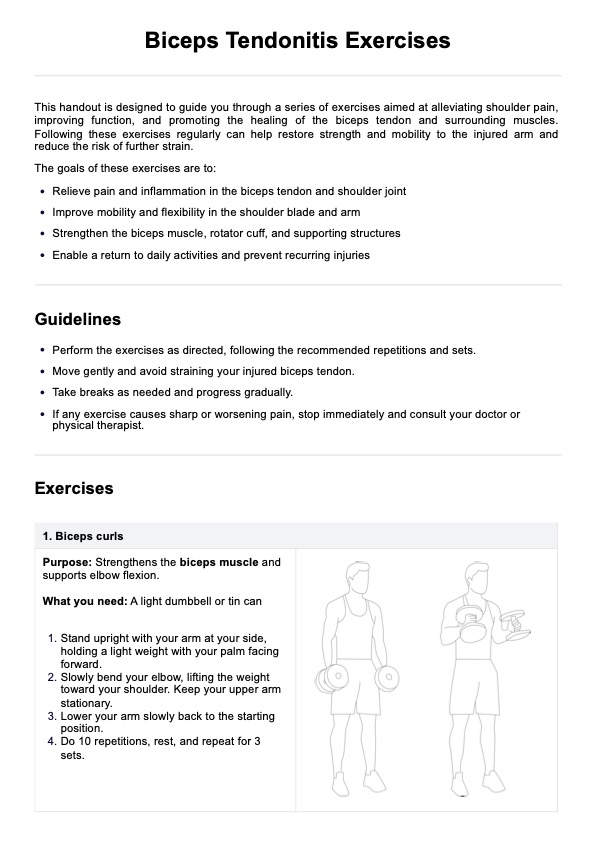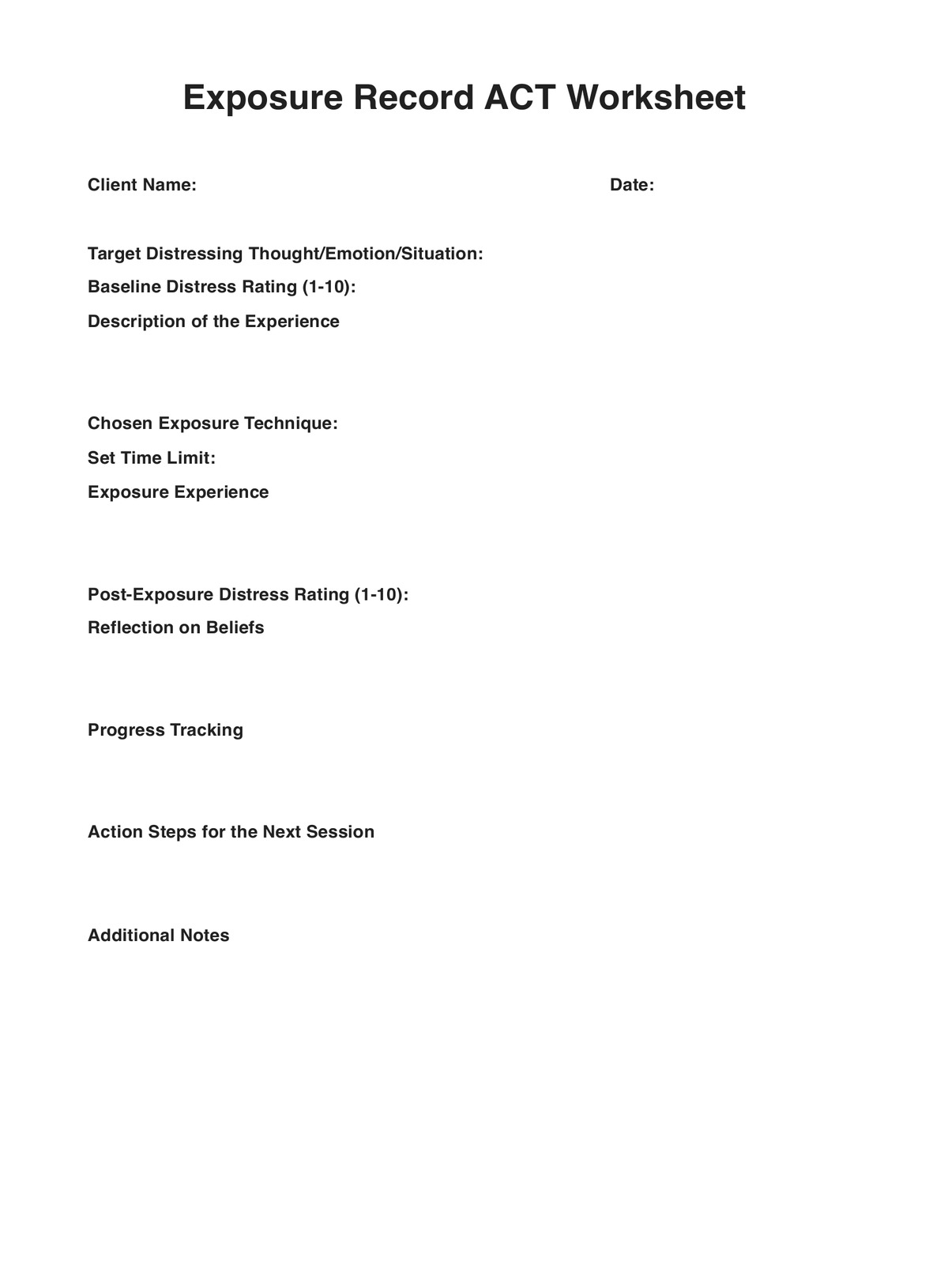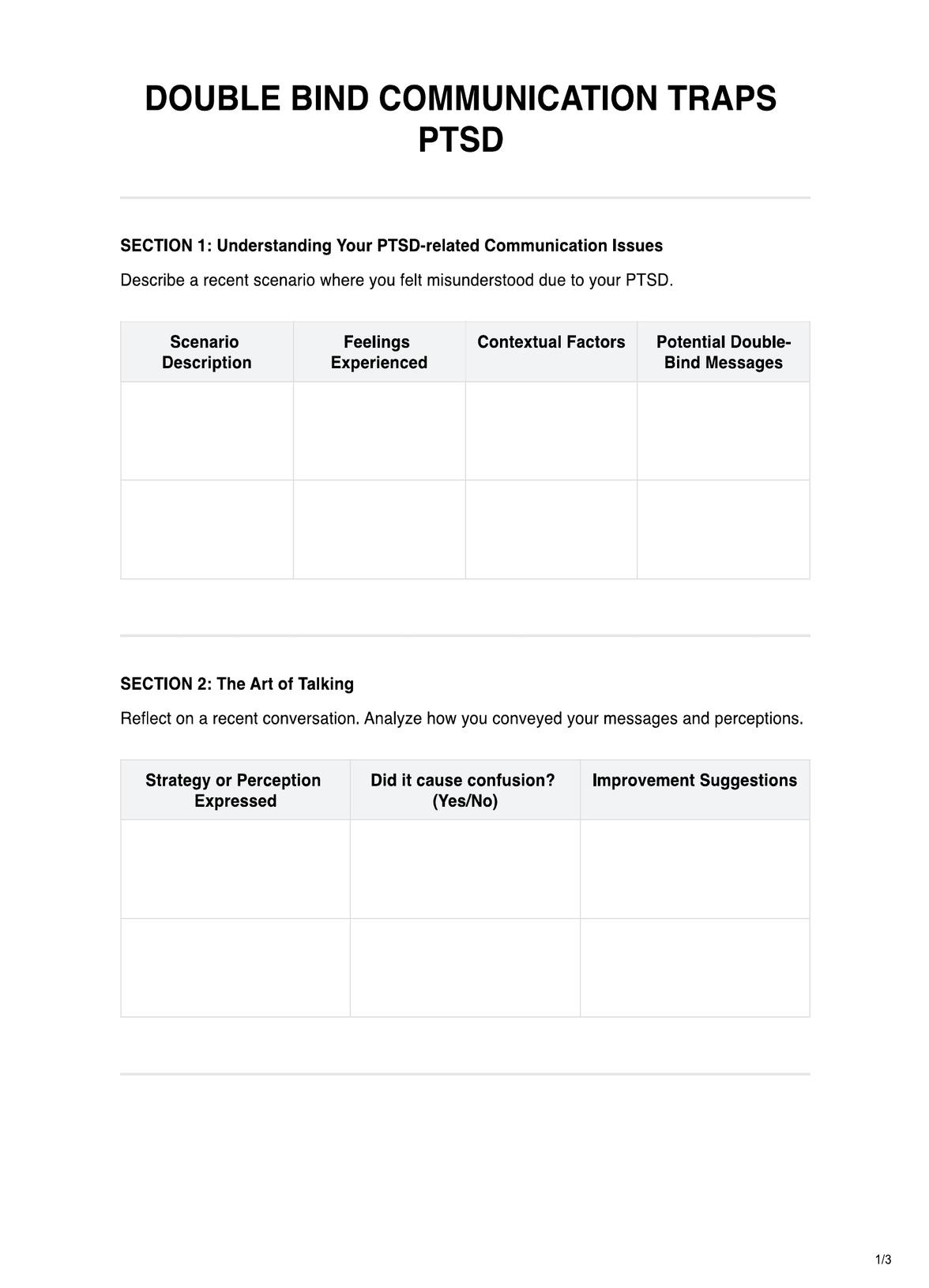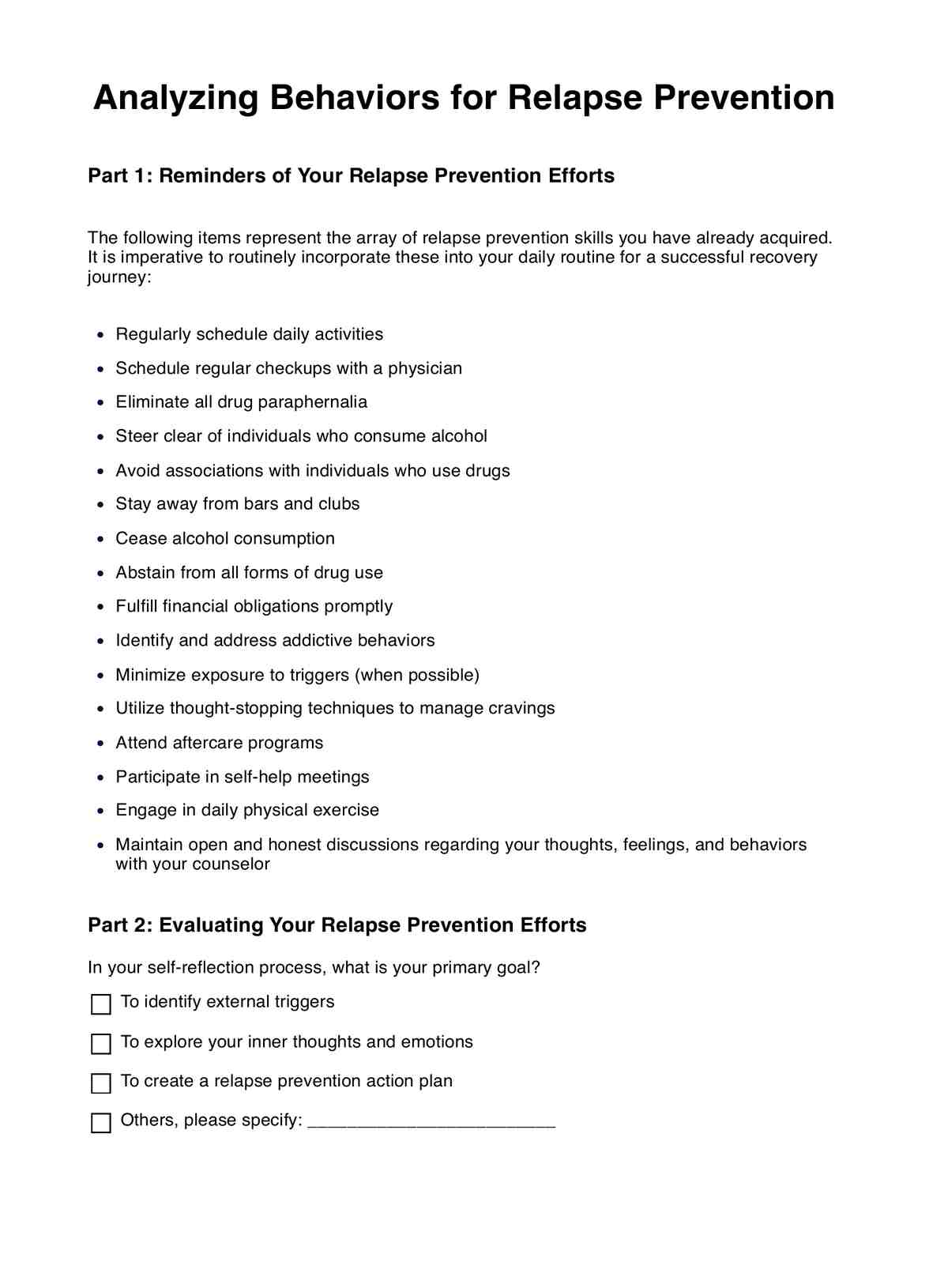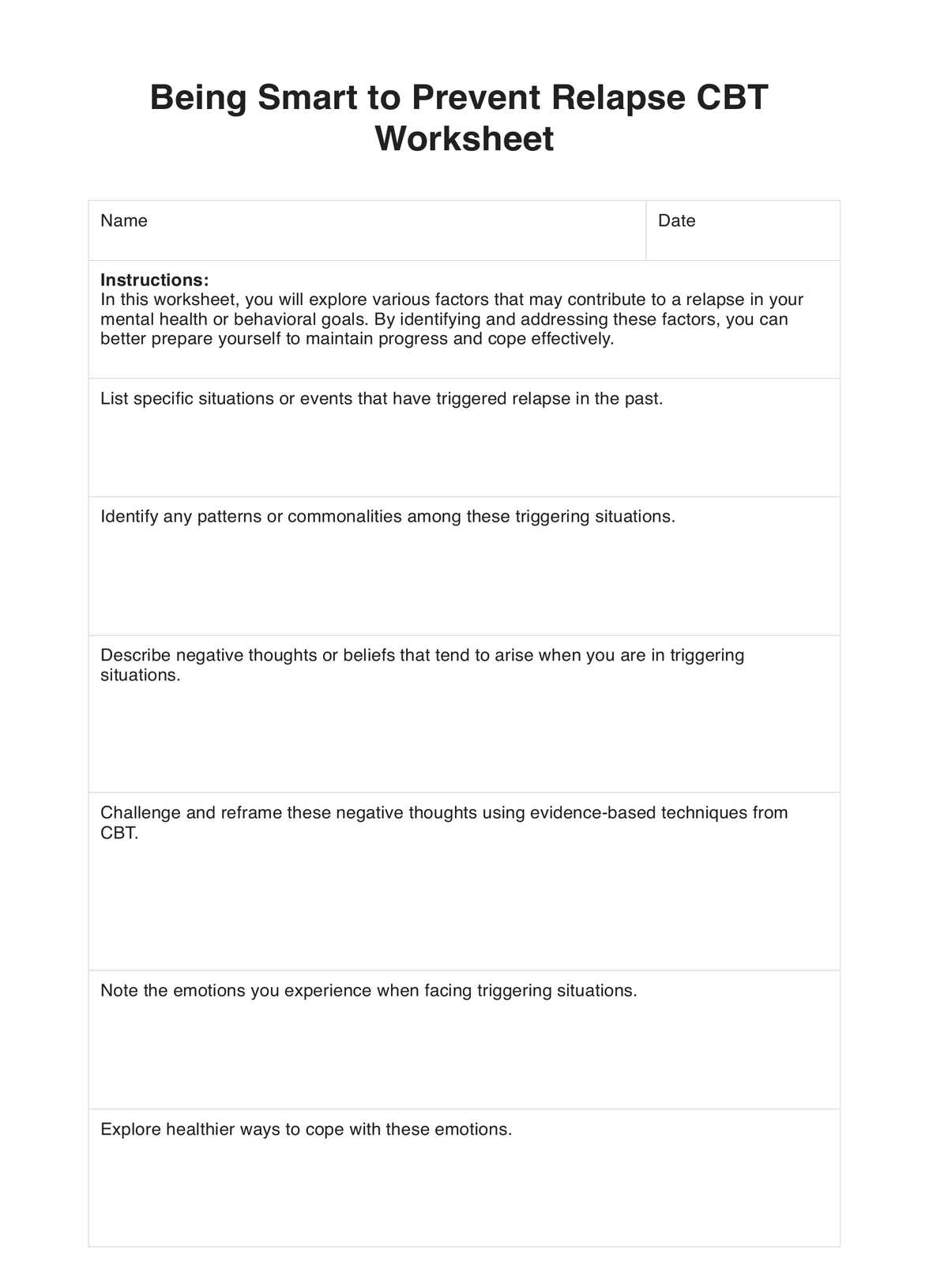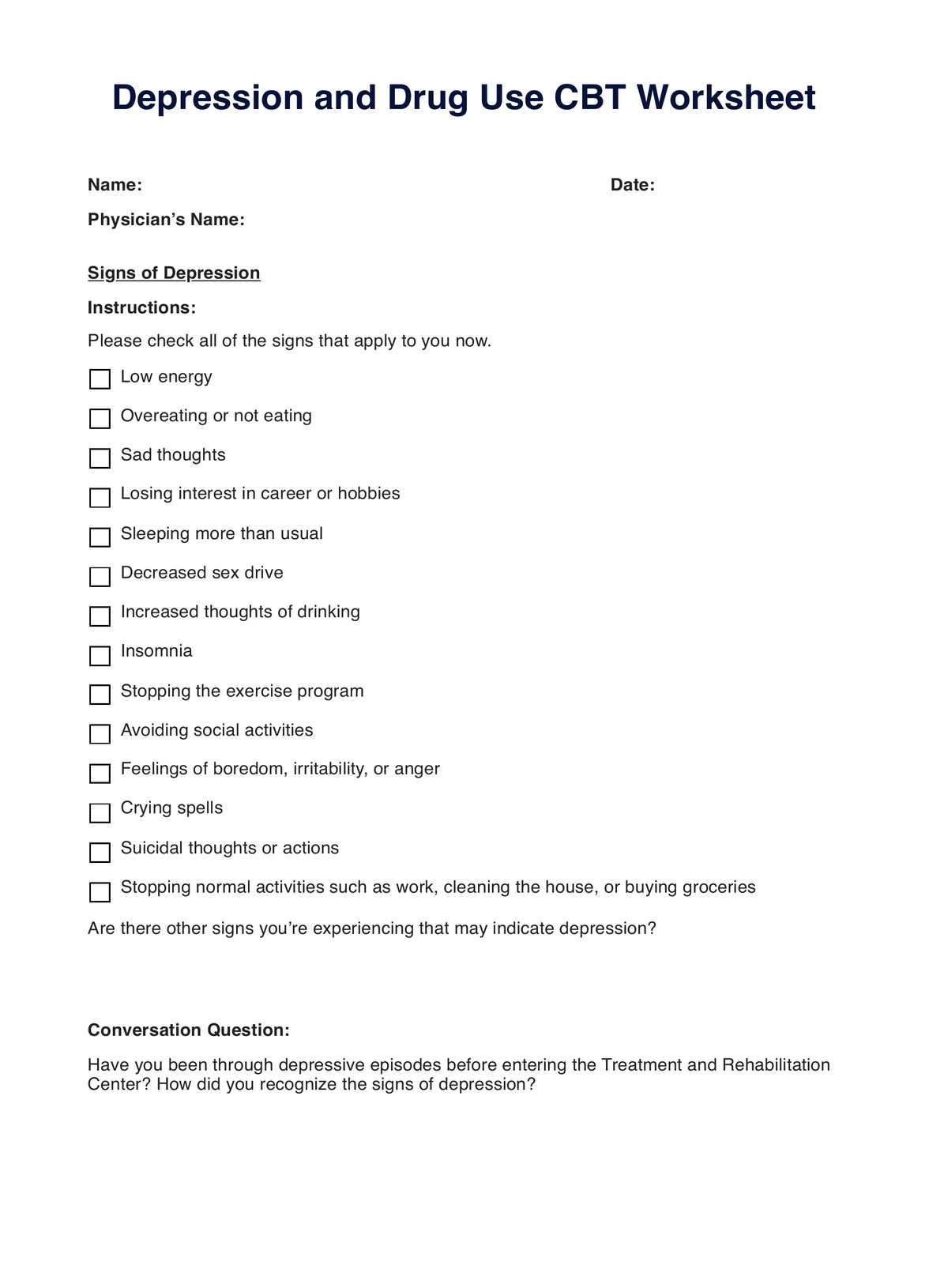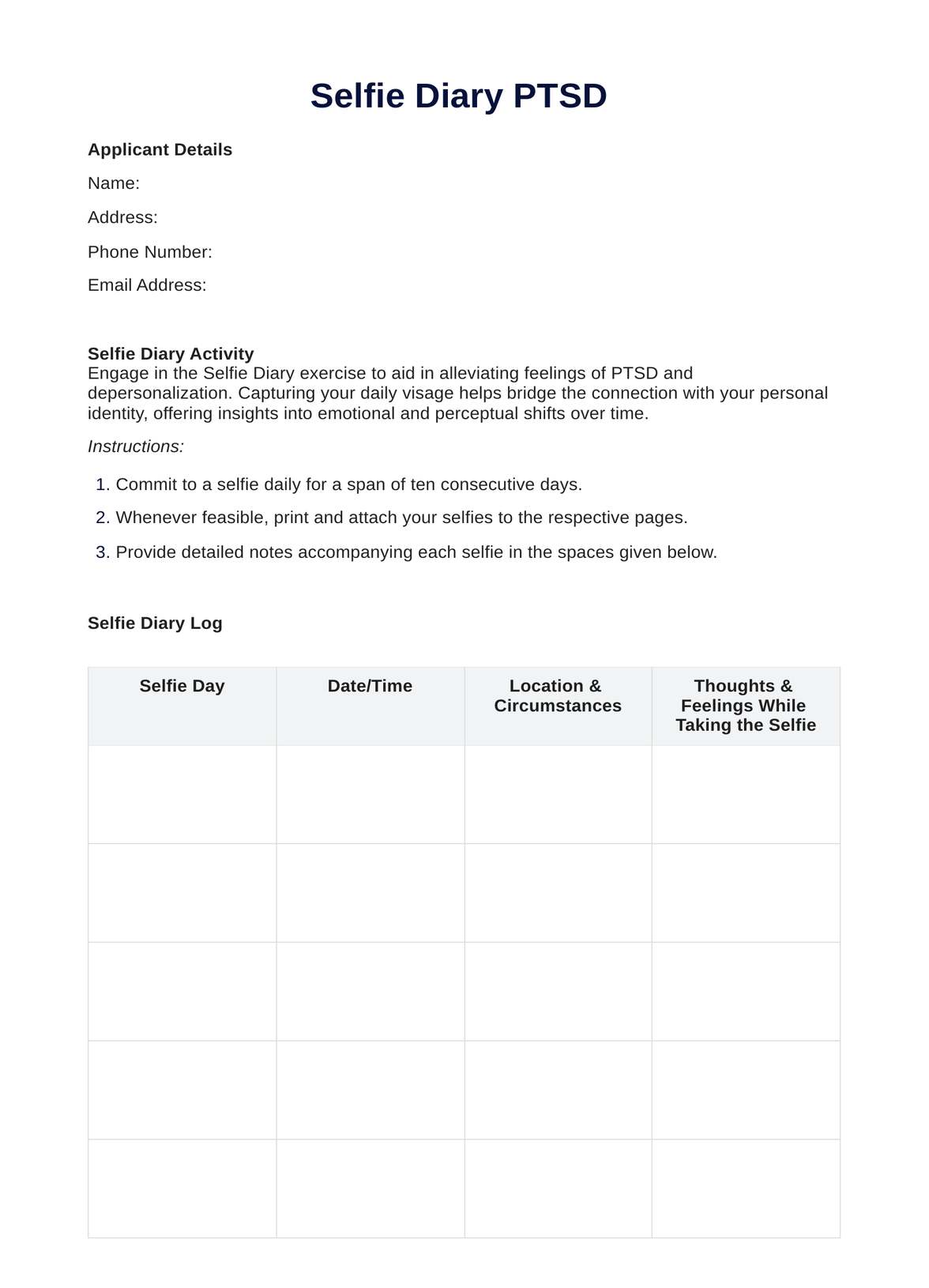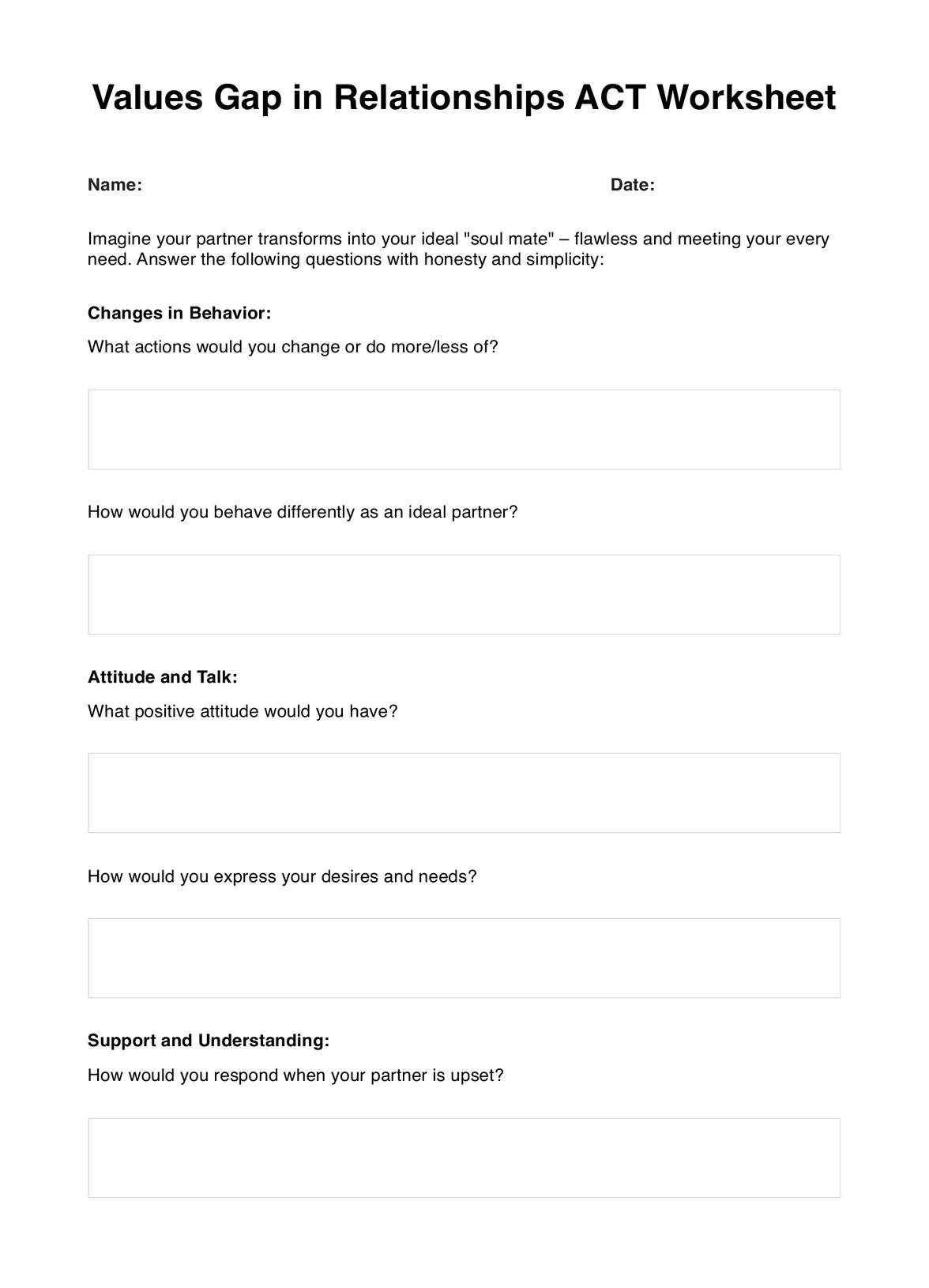Neuro Checks Nursing
Learn about Neuro Checks Nursing, a crucial practice in healthcare, ensuring efficient patient care and management.


What is a Neuro Checks Nursing?
Neuro checks in nursing are routine neurological assessments used to monitor a patient’s neurological status, focusing on vital functions such as mental status, cranial nerve function, motor response, and sensory function. These neuro assessments are especially crucial for patients with neurological conditions, traumatic brain injury, stroke, or spinal cord injury.
The neuro check process typically involves evaluating the patient’s level of consciousness, mental status, and orientation, often using the Glasgow Coma Scale to assess verbal response and motor function. Nurses perform a cranial nerve assessment, testing specific cranial nerves like the olfactory nerve (cranial nerve I), optic nerve (cranial nerve II), facial nerve (cranial nerve VII), and the spinal accessory (cranial nerve XI) to identify any sensory deficits or motor deficits. These checks may include asking the patient to perform tasks that involve cranial nerves, such as testing the gag reflex (vagus nerve) or assessing smell (olfactory nerve), which can reveal underlying issues in the nervous system.
Motor function checks, such as testing upper extremity strength, deep tendon reflexes, and assessing gait, are also fundamental for identifying deficits in muscle tone and coordination. Sensory function is evaluated to detect sensory deficits, often through tactile assessments. Additional tests, like the finger-to-nose test, heel-to-shin test, and positive Romberg test, assess cerebellar functioning and balance.
Routine Neuro Checks Nursing assessments allow healthcare professionals to recognize unexpected findings early and facilitate timely intervention. By documenting each neuro exam and using standardized clinical methods, nurses support advanced practice and contribute to comprehensive neurological exams, which are essential for guiding appropriate care, managing neurological injuries, and improving patient outcomes.
Neuro Checks Nursing Template
Neuro Checks Nursing Example
How does our Neuro Checks Nursing template work?
The Neuro Checks Nursing template is a structured guide designed to help nurses perform comprehensive neurological assessments with consistency and accuracy. This template includes key components of neuro assessment, allowing healthcare providers to monitor the patient’s neurological status and detect early signs of neurological injury, deficits, or changes.
Step 1: Download the template
Download the free Neuro Checks Nursing template from this guide to get started. You can click "Use template" to open it within the Carepatron platform, where you can customize the tool, or you can also select "Download" to access a free fillable PDF.
Step 2: Patient details and symptoms
Ask the patient about their personal details and follow the guide questions to explore their experience further. This includes questions such as whether they experience headaches or dizziness and whether they have difficulty swallowing. This helps provide context for the neuro assessment, particularly in cases of traumatic brain injury, stroke, or spinal cord injury.
Step 3: Assess different aspects of neurological functioning
Follow the template's structure to assess the patient's neurological status. The template incorporates different methods of testing for a more comprehensive neurological exam. This includes the National Institutes of Health (NIH) Stroke Scale, tests for the patient's mental status, fields to assess cranial nerves such as cranial nerve III, IV, and VI, the glossopharyngeal nerve (cranial nerve IX) and trigeminal nerve among others. This also involves fields to test motor function and to test upper extremity strength.
Step 4: Analyze findings and store the form securely
Use the insights and findings gathered in this assessment to inform your next steps and store this assessment form in a secure location or a HIPAA-compliant patient record software.
When would you use this template?
The Neuro Checks Nursing template is an invaluable tool for healthcare practitioners, particularly in settings where monitoring a patient’s neurological status is crucial. This template provides a systematic way to assess and document neurological changes, making it essential in various medical scenarios.
Post-operative monitoring
Close neuro checks are essential for patients recovering from surgeries involving the brain or spinal cord to track neurological status. Using this template, nurses and healthcare providers can monitor for unexpected findings, such as shifts in cranial nerve function, motor deficits, or sensory changes. Detecting these changes early allows for prompt intervention, potentially reducing complications.
Trauma care
In trauma settings, especially cases of head injury or spinal cord injury, neuro checks play a pivotal role. The template facilitates the regular evaluation of mental status, cranial nerve assessment, and signs of neurological injury. This can help identify early warning signs of complications like internal bleeding, swelling, or neurological deficits.
Intensive care units (ICUs)
Patients in ICUs often have fluctuating health conditions, and neuro checks are key in tracking their neurological stability. By evaluating motor function, sensory function, and mental orientation, healthcare providers can detect subtle shifts in neurological status.
Benefits
In healthcare, especially in nursing, having a structured, systematic method for assessing and documenting a patient’s neurological status is essential. The Neuro Checks Nursing template offers numerous benefits in this area:
Facilitates comprehensive neurological assessment
The Neuro Checks Nursing template ensures a thorough and consistent evaluation of the patient's neurological status. This comprehensive approach ensures that aspects such as deep tendon reflexes, sensory deficits, and even more specific checks like the gag reflex (related to the vagus nerve) are not overlooked when evaluating the neurologic system.
Promotes consistency across assessments
A standard template brings consistency in conducting and recording neuro checks across healthcare teams. This uniform approach enables precise comparisons of neurological assessments over time, between shifts, or among different healthcare providers. Such consistency is critical for understanding subtle changes in the patient’s neurological condition and creates a reliable record of the patient’s neurological status.
Enhances communication among healthcare providers
The standardized format of the Neuro Checks Nursing template enhances communication among healthcare professionals by providing a clear snapshot of the patient’s neurological status. This documentation streamlines discussions on findings related to cranial nerves, mental status, motor response, and sensory function.
Enables early detection and timely intervention
Regular neuro checks with systematic documentation help identify subtle changes in the patient’s neurological system. Early detection of issues, such as unexpected findings in coordination or motor function, changes in cranial nerve response (e.g., hypoglossal nerve or cranial nerve vii), or signs of neurological injury, allows for timely intervention.
Assists in tracking patient progress and response
The Neuro Checks Nursing template is invaluable for tracking neurological status over time. It captures trends in sensory function, motor response, mental orientation, and cranial nerve function, allowing healthcare providers to gauge the patient's progress or response to treatments.
Offers a cost-effective solution
The Neuro Checks Nursing template is a free, accessible resource for all healthcare providers. This cost-effective tool enhances the quality of neurological care and can be used alongside other assessment tools without additional strain on healthcare budgets.
Commonly asked questions
Nursing neuro checks include mental status, cranial nerve assessment, the patient's motor and sensory function ability, reflexes, and vital signs to monitor neurological status.
A routine neurological exam includes five steps: assessing mental status, cranial nerves, motor function, sensory response, and reflexes.
Nurses often use the Glasgow Coma Scale, which checks neurological status by assessing mental status, cranial nerves, motor and sensory function, and reflexes.
An example is checking pupil response to light, assessing motor response by asking the patient to squeeze a hand and testing cranial nerves for facial symmetry.


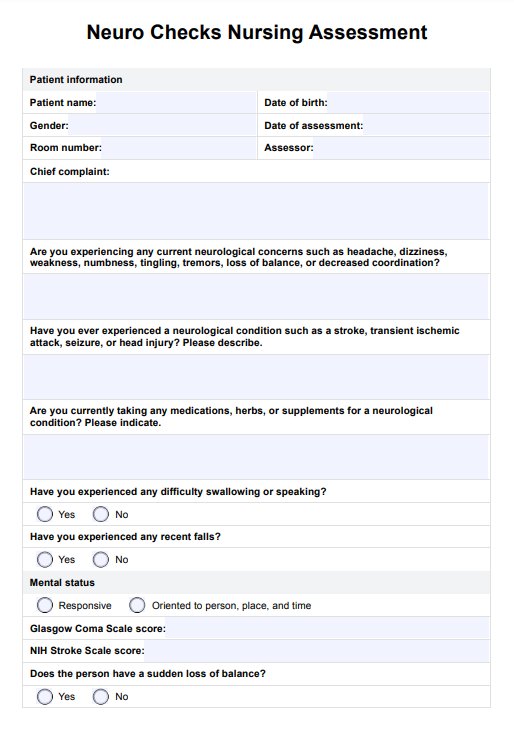
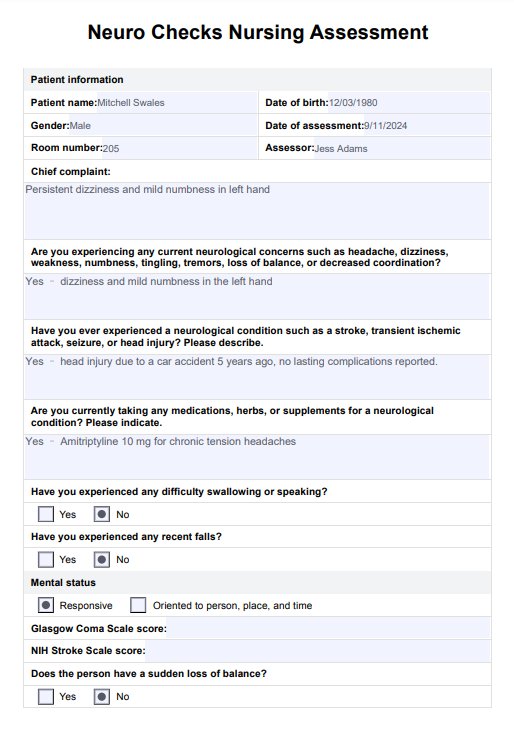













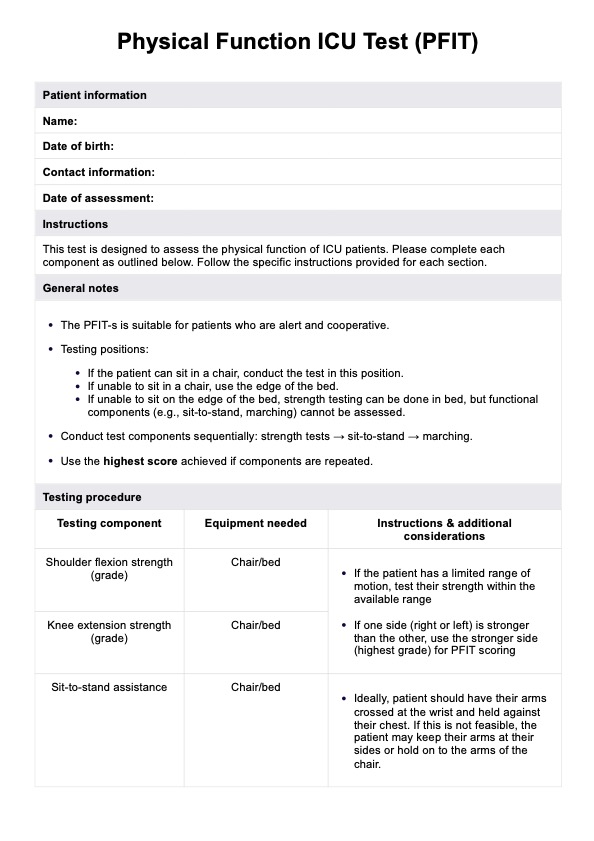






-template.jpg)
































































